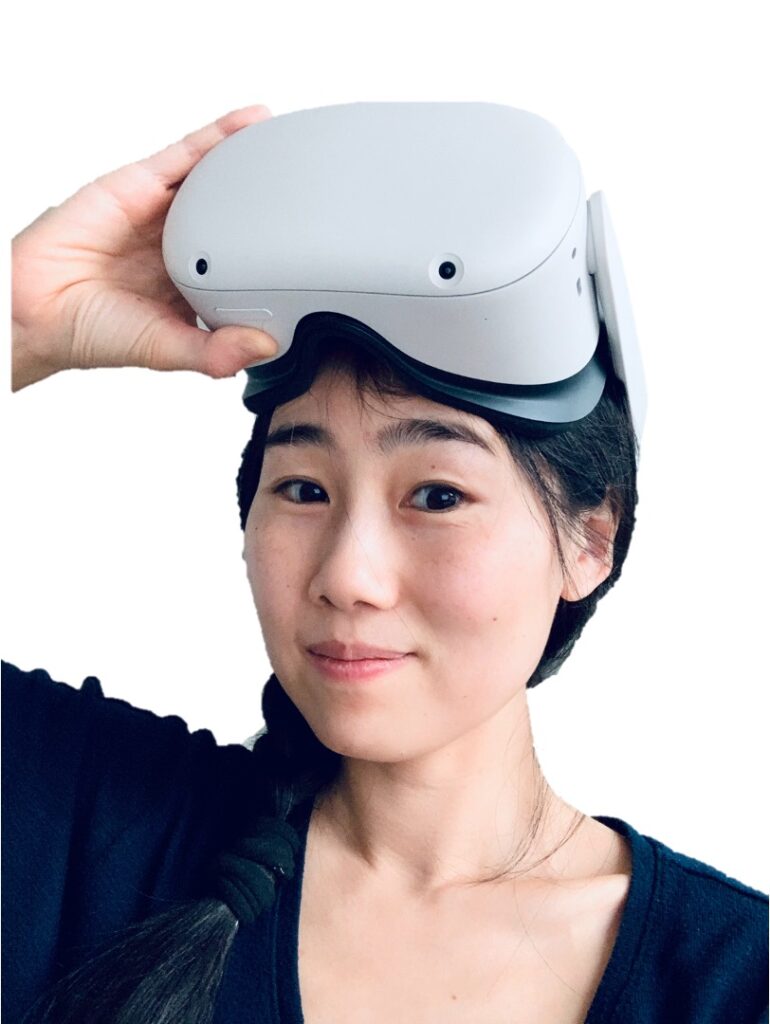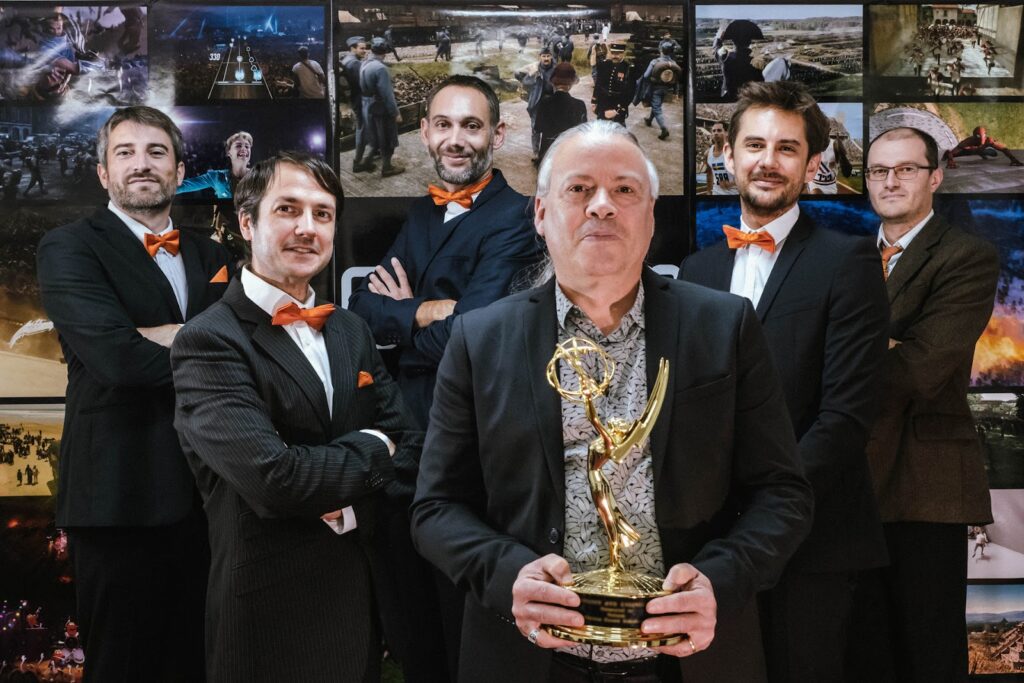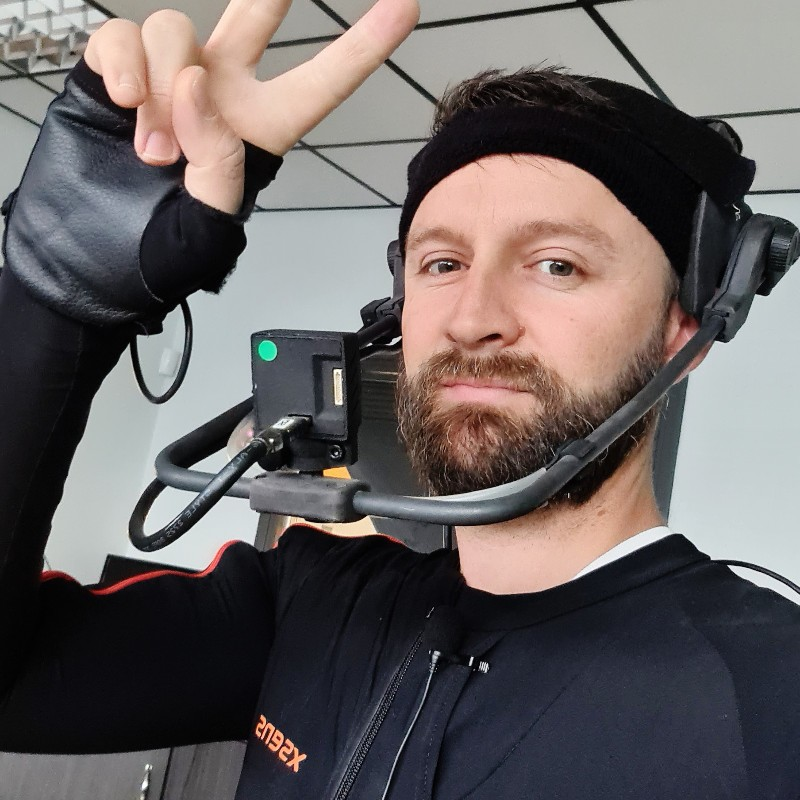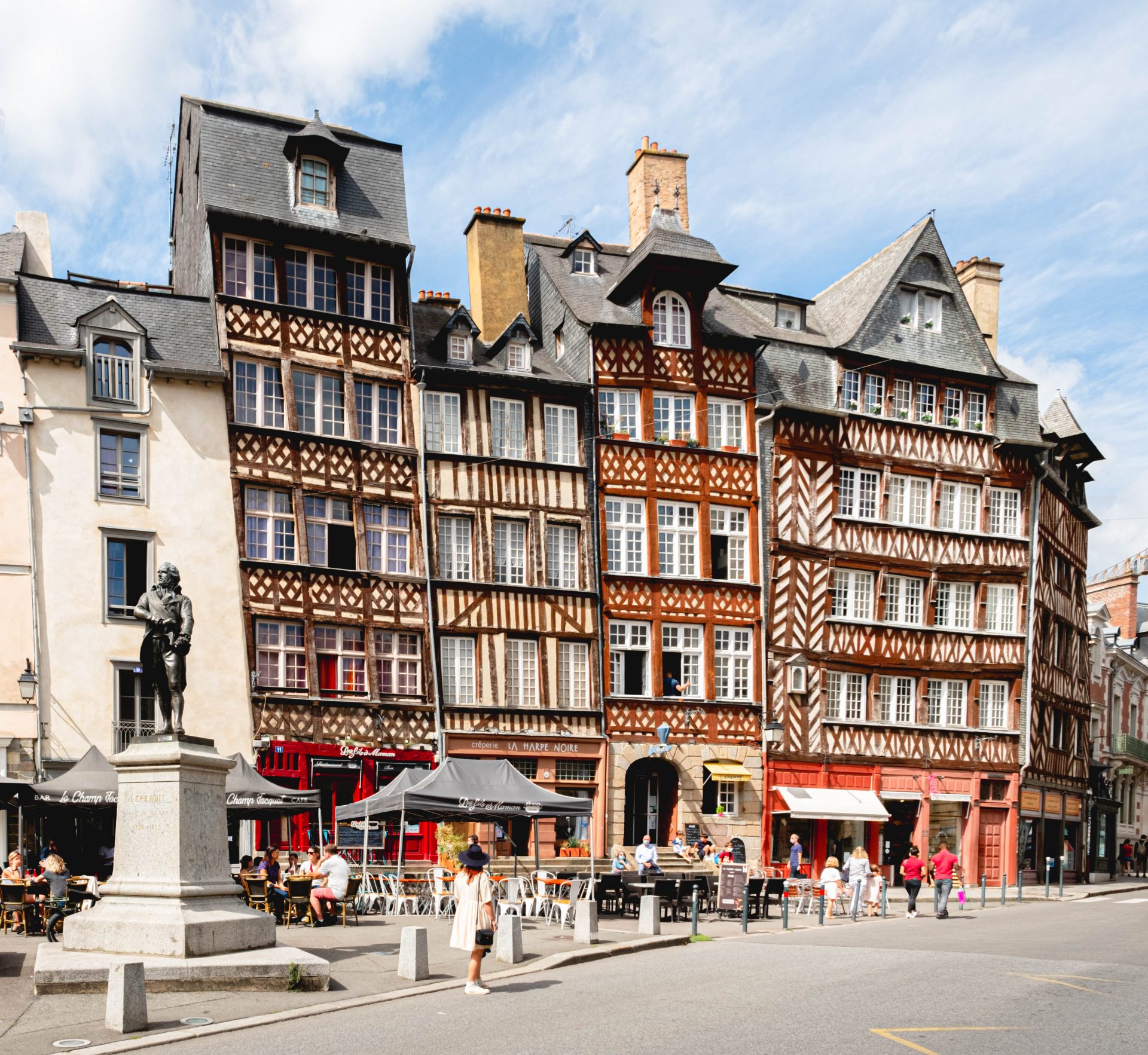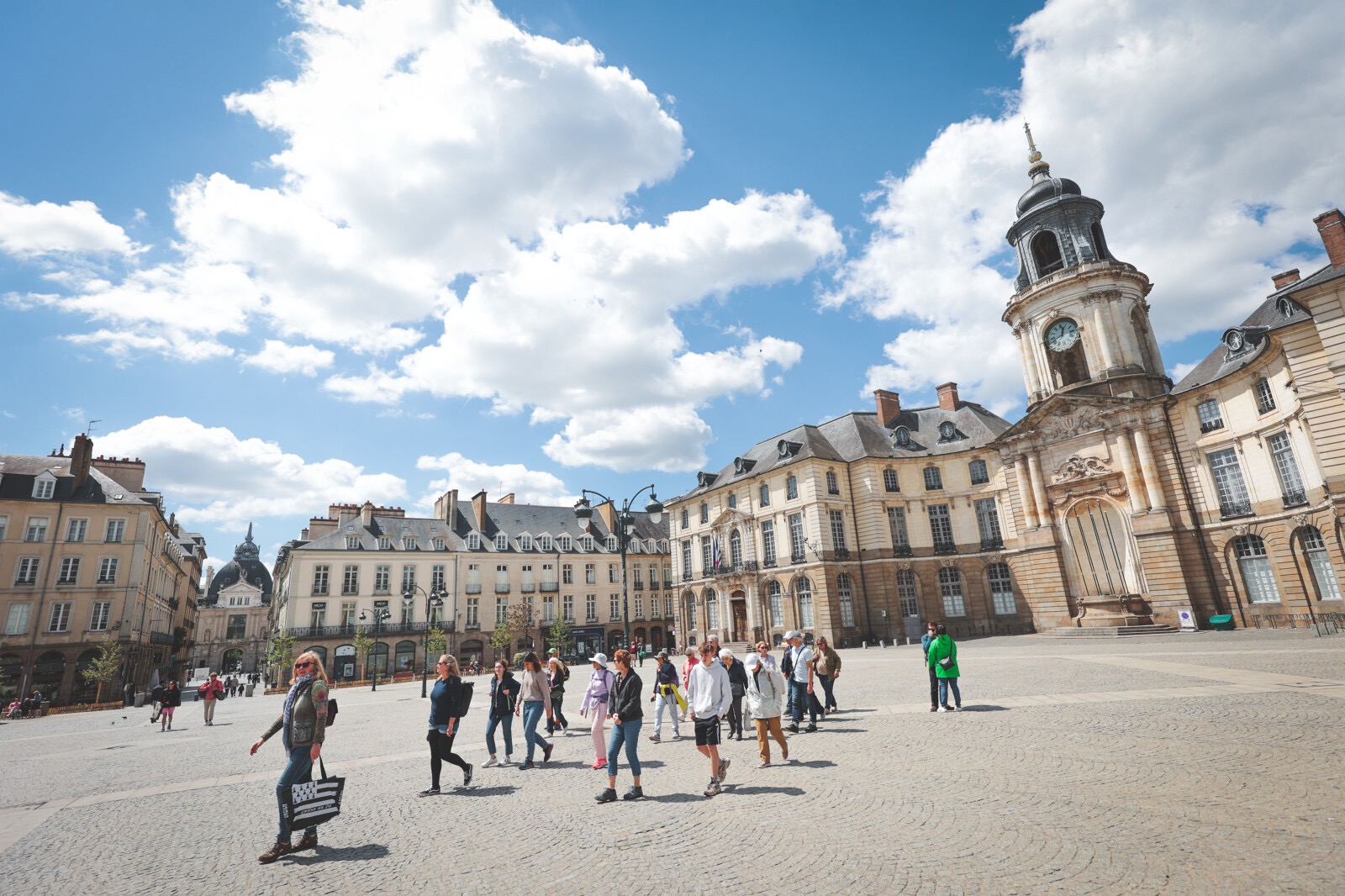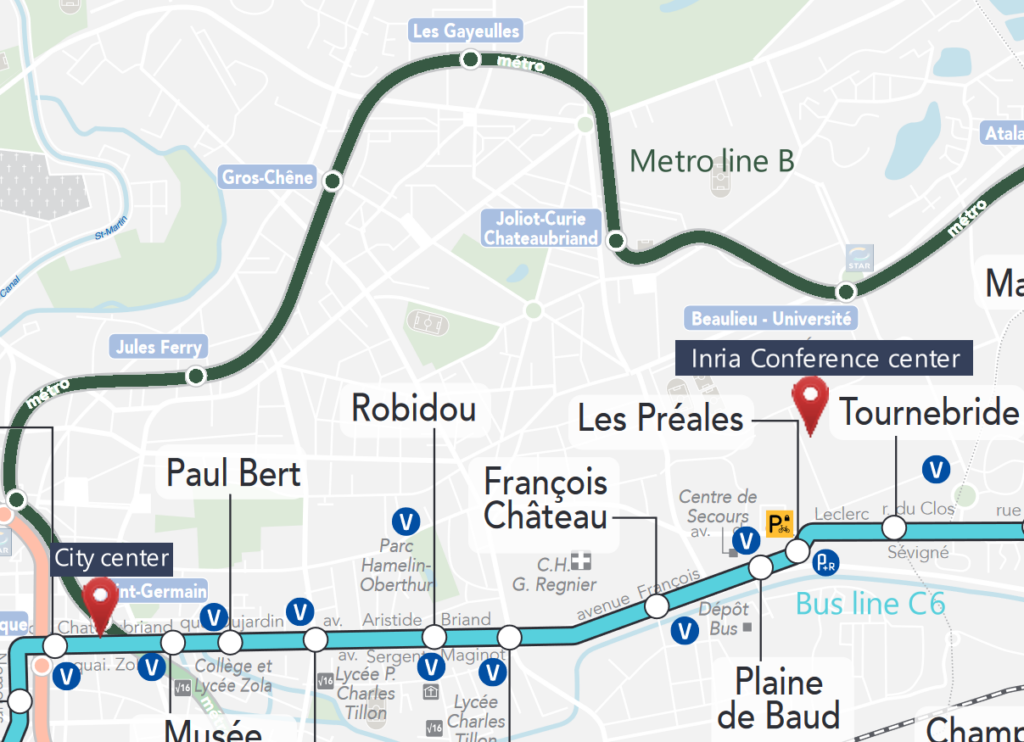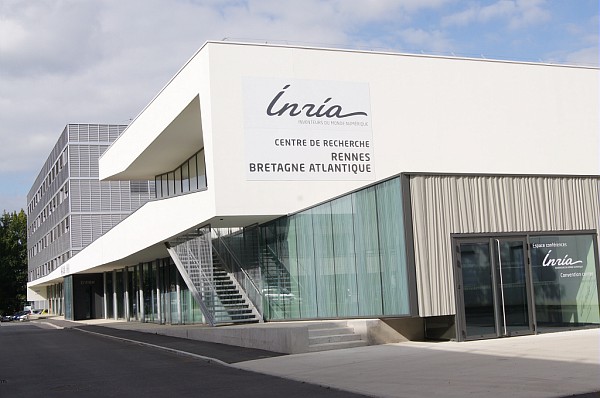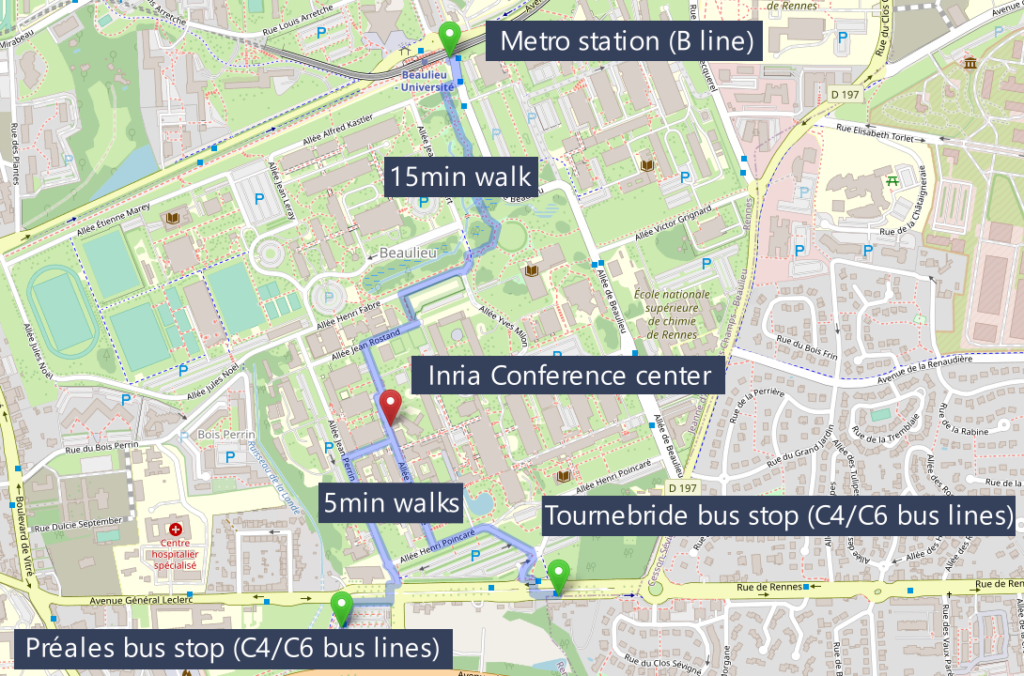Last updates: MIG 2023 AWARDS RESULTS
BEST POSTER AWARD:
Enabling Physical VR Interaction with Deep RL Agents.
Paul Boursin, David Hamelin, James Burness and Marie-Paule Cani
BEST PRESENTATION AWARD:
Physical Simulation of Balance Recovery after a Push.
Alexis Jensen, Thomas Chatagnon, Niloofar Khoshsiyar, Daniele Reda, Michiel van de Panne, Charles Pontonnier and Julien Pettré
BEST PAPER AWARD (non-student category):
Real-time Computational Cinematographic Editing for Broadcasting of Volumetric-captured events: an Application to Ultimate Fighting.
Francois Bourel, Xi Wang, Ervin Teng, Valerio Ortenzi, Adam Myhill and Marc Christie
BEST PAPER AWARD (student category):
Primal Extended Position Based Dynamics for Hyperelasticity.
Yizhou Chen, Yushan Han, Jingyu Chen, Shiqian Ma, Ronald Fedkiw and Joseph Teran
ACM MIG 2023 is sponsored by

Click here to access the replay playlist of ACM MIG 2023 !
REGISTRATION (link)
| Registration type | Early Bird (–>oct. 31st 2023) | Late Registration (nov 1st 2023 –>) |
| On-site attendance | ||
| Non ACM member | 580€ | 680€ |
| ACM member | 500€ | 600€ |
| Student | 350€ | 450€ |
| Virtual attendance | ||
| Non ACM author | 183€ | 267€ |
| ACM author | 117€ | 200€ |
| Virtual attendee | free | free |
Please follow this link to get registered: https://cvent.me/NlEeen
For virtual presentation of papers and posters, please pick one of the paying virtual attendance registration. The virtual attendance is free, virtual meeting links will be posted here.
Registrations include:
- Tuesday welcome party in the Rennes downtown area (more info soon)
- Wednesday, thursday and friday lunches
- Wednesday poster session food and beverage
- Thursday social event
Visit to Mont Saint-Michel is planned on Saturday Nov. 18, but not included in registration fees. We plan to help you organizing a visit to the Mont Saint Michel. The visit will be at your cost, Mont Saint Michel is 1 hour drive from Rennes, our goal is to form a group for the visit, and to see whether we are enough to organize transportation, food and commented visit. We will propose a solution anyway, and will let you know about the cost before you confirm your participation. For you to get an idea about the cost, the Mont Saint Michel can be reached by public transport (bus from Rennes) for 30 euros (two-ways), the visit of the abbey is 11 euros. If we organize a commented tour and private transportation, the cost will be increased of course. If you are interested, please answer this form: https://forms.gle/V6uNMpRhVAbCDgZh8 !
Motion plays a crucial role in interactive applications, such as VR, AR, and video games. Characters move around, objects are manipulated or move due to physical constraints, entities are animated, and the camera moves through the scene. Motion is currently studied in many different research areas, including graphics and animation, game technology, robotics, simulation, computer vision, and also physics, psychology, and urban studies. Cross-fertilization between these communities can considerably advance the state-of-the-art in the area.
The goal of the Motion, Interaction and Games conference is to bring together researchers from this variety of fields to present their most recent results, to initiate collaborations, and to contribute to the establishment of the research area. The conference will consist of regular paper sessions, poster presentations, and as well as presentations by a selection of internationally renowned speakers in all areas related to interactive systems and simulation. The conference includes entertaining cultural and social events that foster casual and friendly interactions among the participants.
This year again, MIG will be held in a hybrid format, with a strong will to have you in person here in Rennes, for you to enjoy the most the conference program, face-to-face interactions with the community, the city of Rennes and the beautiful Brittany region! Nevertheless, you may choose to attend in person or to attend virtually to allow a maximum (virtual) attendance.
3RD CALL FOR PAPERS
The 16th annual ACM/SIGGRAPH conference on Motion, Interaction and Games (MIG 2023, formerly Motion in Games), an ACM SIGGRAPH Specialized Conferences, held in cooperation with Eurographics, will take place in Rennes, France, 15th – 17th Nov 2023.
The goal of the Motion, Interaction, and Games conference is to be a platform for bringing together researchers from interactive systems and animation, and have them present their most recent results, initiate collaborations, and contribute to the advancement of the research area. The conference will consist of regular paper sessions for long and short papers, and talks by a selection of internationally renowned speakers from Academia as well as from the Industry.
The conference organizers invite researchers to consider submitting their highest quality research for publication in MIG 2023.
Important dates
- Abstract submission: No abstract submission required*
- Long and Short Paper Submission Deadline:
7th July 202314th July 2023 (extended) - Long and Short Paper Acceptance Notification:
1st September 20235th September 20237th September 23:59 AoE - Long and Short Paper Camera Ready Deadline: 22nd September 2023
*New papers may be submitted even if no abstract was previously submitted. We already received a significant number of abstracts to facilitate the reviewing process, so no further abstract submissions are required. Thanks to those authors who submitted abstracts.
Poster
- Poster Submission Deadline:
12th September 202322nd September 2023 (extended) - Poster Notification:
22nd September 202329th September 2023 - Final Version of Accepted Posters:
29th September 2023TBD
Note: all submission deadlines are 23:59 AoE timezone (Anywhere on Earth).
Topics of Interest
Relevant topics include (but are not limited to):
- Animation Systems
- Animal locomotion
- Autonomous actors
- Behavioral animation, crowds & artificial life
- Clothes, skin and hair
- Deformable models
- Expressive animation
- Facial animation
- Facial feature analysis
- Game interaction and player experience
- Game technology
- Gesture recognition
- Group and crowd behaviour
- Human motion analysis
- Image-based animation
- Interaction in virtual and augmented reality
- Interactive animation systems
- Interactive storytelling in games
- Machine learning techniques for animation
- Motion capture & retargeting
- Motion control
- Motion in performing arts
- Motion in sports
- Motion rehabilitation systems
- Multimodal interaction: haptics, sound, etc
- Navigation & path planning
- Physics-based animation
- Real-time fluids
- Robotics
- User-adaptive interaction and personalization
- Virtual humans
- XR (AR, VR, MR) environments
We invite submissions of original, high-quality papers in any of the topics of interest (see above) or any related topic. Each submission should be 7-9 pages in length for a long paper, or 4-6 pages for a short paper. References are excluded from the page limit. They will be reviewed by our international program committee for technical quality, novelty, significance, and clarity. We encourage authors with content that can be fit into 6 pages to submit as a short paper and only to submit a long paper if the content requires it.
Submission Instructions
All submissions will be double-blind peer-reviewed by our international program committee for technical quality, novelty, significance, and clarity. Double-blind means that paper submissions must be anonymous and include the unique paper ID that will be assigned upon creating a submission using the online system.
Papers should not have previously appeared in, or be currently submitted to, any other conference or journal. For each accepted contribution, at least one of the authors must register for the conference.
All submissions will be considered for the Best Paper, Best Student Paper, and Best Presentation awards, which will be conferred during the conference. Authors of selected best papers will be referred (under validation) to submit extended and significantly revised versions for a Special Issue of Computers & Graphics journal.
We also invite submissions of poster papers in any of the topics of interest and related areas. Each submission should be 1-2 pages in length. Two types of work can be submitted directly for poster presentation:
- Work that has been published elsewhere but is of particular relevance to the MIG community can be submitted as a poster. This work and the venue in which it is published should be identified in the abstract;
- Work that is of interest to the MIG community but is not yet mature enough to appear as a paper.
Posters will not appear in the official MIG proceedings or in the ACM Digital library but will appear in an online database for distribution at author’s discretion. You can use any paper format, though the MIG paper format is recommended. In addition, you are welcome to submit supplementary material such as videos.
All submissions should be formatted using the SIGGRAPH formatting guidelines (sigconf). Latex template can be found here: https://www.acm.org/publications/proceedings-template (for the review version, you can use the command \documentclass[sigconf, screen, review, anonymous]{acmart})
All papers and posters should be submitted electronically to their respective tracks on EasyChair: https://easychair.org/conferences/?conf=mig2023
Supplementary Material
Due to the nature of the conference, we strongly encourage authors to submit supplementary materials (such as videos) with the size up to 200MB. They may be submitted electronically and will be made available to reviewers. For Video, we advise QuickTime MPEG-4 or DivX Version 6, and for still images, we advise JPG or PNG. If you use another format, you are not guaranteed that reviewers will view them. It is also allowed to have an appendix as supplementary material. These materials will accompany the final paper in the ACM Digital Library.
Keynotes
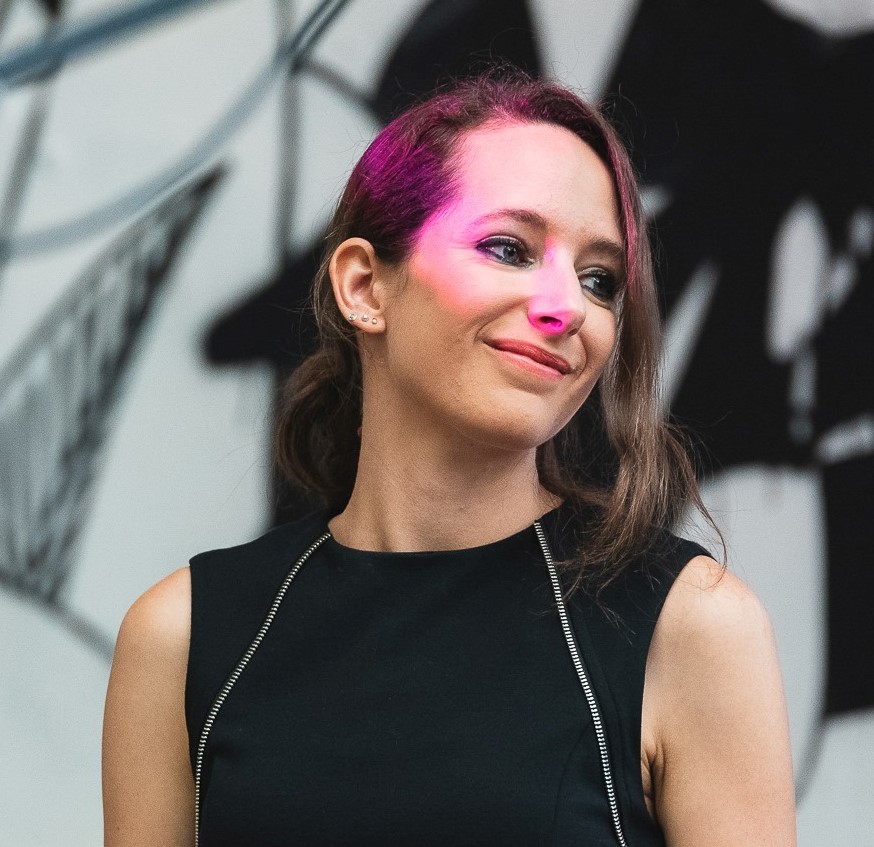
Johanna Pirker
Dr. Johanna Pirker is a computer scientist focusing on game development, research, and education and an active and strong voice of the local indie dev community. She has lengthy experience in designing, developing, and evaluating games and VR experiences and believes in them as tools to support learning, collaboration, and solving real problems. Johanna has started in the industry as QA tester at EA and still consults studios in the field of games user research. In 2011/12 she started researching and developing VR experiences at Massachusetts Institute of Technology. At the moment, she is is professor for media informatics at the Ludwig Maximilian University of Munich and Ass.Prof. for game development at TU Graz and researches games with a focus on AI, HCI, data analysis, and VR technologies. Johanna was listed on the Forbes 30 Under 30 list of science professionals.
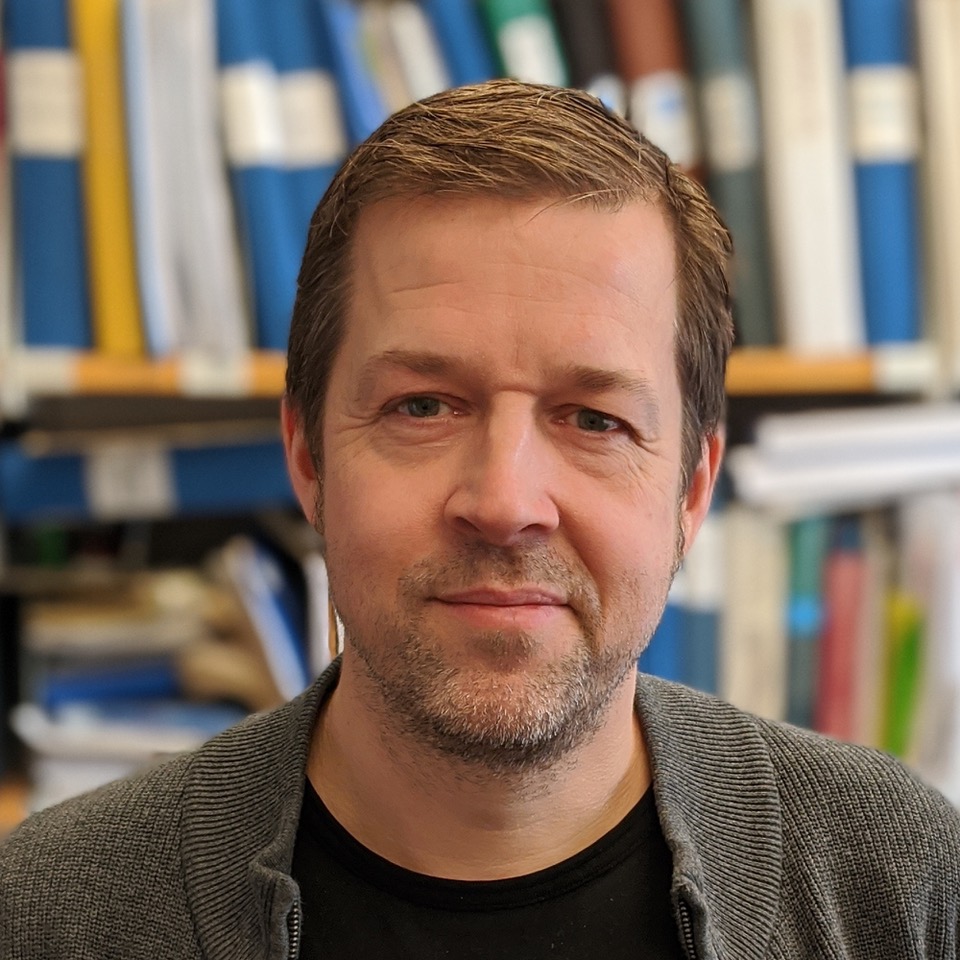
Jonas Beskow
Jonas Beskow is a Professor of Speech Communication, specialising in Multimodal Embodied Systems at KTH in Stockholm. He is also a co-founder and Senior R&D Engineer at Furhat Robotics. His interests encompass modelling, synthesis, and understanding human communicative signals and behaviours, including speech, facial expressions, gestures, gaze, and the dynamics of face-to-face interaction. Specifically, he is passionate about integrating all these elements into machines and embodied agents, both physical and virtual, to enhance more engaging and dynamic interactions.
Prof Sylvia Pan is a Professor of Virtual Reality at Goldsmiths, University of London. She co-leads the SeeVR research group including 10 academics and researchers. She holds a PhD in Virtual Reality, and an MSc in Computer Graphics, both from UCL, and a BEng in Computer Science from Beihang University, Beijing, China. Before joining Goldsmiths in 2015, she worked as a research fellow at the Institute of Cognitive Neuroscience, and at the Computer Science Department of UCL. Her research interest is the use of Virtual Reality as a medium for real-time social interaction, in particular in the application areas of medical training and therapy. Her work in social anxiety in VR and moral decisions in VR has been featured multiple times in the media, including BBC Horizon, the New Scientist magazine, and the Wall Street Journal. Her 2017 Coursera VR specialisation attracted over 100,000 learners globally, and she co-leads on the MA/MSc in Virtual and Augmented Reality at Goldsmiths Computing.
How can model-based AI advance locomotion skills for legged characters?
Steve Tonneau is a lecturer at the University of Edinburgh. He defended his Phd in 2015 after 3 years in the INRIA/IRISA Mimetic research team, and pursued a post-doc in robotics at LAAS-CNRS in Toulouse, within the Gepetto team. His research focuses on motion planning based on the biomechanical analysis of motion invariants. Applications include computer graphics animation as well as robotics.
Local Industry (Wednesday November 15th, after poster session)
Mixed with the poster session, we propose to have presentations from companies from the Rennes area in the field of Computer Animation and Graphics! We are happy to have 3 great (but short) talks from:
Stéphane Donikian, Golaem (golaem.com)
Cyril Corvazier, Mercenaries Engineering (guerillarender.com)
Quentin Avril, InterDigital (interdigital.com)
International Program Comitee
Rahul Narain
Indian Institute of Technology Delhi
Panayiotis Charalambous
CYENS – Center of Excellence
Fotis Liarokapis
CYENS – Center of Excellence
Franck Multon
INRIA
Remi Ronfard
INRIA
Rinat Abdrashitov
Epic Games
Mikhail Bessmeltsev
University of Montreal
Tiberius Popa
Concordia Unviversity
Edmond S. L. Ho
University of Glasgow
Ludovic Hoyet
INRIA Rennes – Centre Bretagne Atlantique
Tianlu Mao
Institute of Computing Technology Chinese Academy of Sciences
Nuria Pelechano
Univesitat Politèctnica de Catalunya
Lauren Buck
Trinity College Dublin
Ylva Ferstl
Ubisoft
Yuting Ye
Reality Labs Research @ Meta
Damien Rohmer
Ecole Polytechnique
Brandon Haworth
University of Victoria
Claudia Esteves
Departamento de Matemáticas, Universidad de Guanajuato
Daniel Holden
Epic Games
He Wang
University College London
Eric Patterson
Clemson University
Ben Jones
University of Utah
Yorgos Chrysanthou
University of Cyprus
Eduard Zell
Bonn University
Marc Christie
Université de Rennes
Adam Bargteil
University of Maryland, Baltimore County
Steve Tonneau
University of Edinburgh
Ronan Boulic
Ecole Polytechnique Fédérale de Lausanne
Pei Xu
Clemson University
John Dingliana
Trinity College Dublin
Christos Mousas
Purdue University
Aline Normoyle
Bryn Mawr College
James Gain
University of Cape Town
Carol O’Sullivan
Trinity College Dublin
Matthias Teschner
University of Freiburg
Hang Ma
Simon Fraser University
Soraia Musse
PUCRS
Sylvie Gibet
Southern Britanny University
Xiaogang Jin
Zhejiang University
Catherine Pelachaud
CNRS – ISIR, Sorbonne
Cathy Ennis
TU Dublin
Zerrin Yumak
Utrecht University
Funda Durupinar Babur
University of Massachussetts Boston
Katja Zibrek
INRIA
Stephen Guy
University of Minnesota
Program
Full papers: 30 mins (20 mins presentation + 10 mins questions)
Short papers: 15 mins (10 mins presentation + 5 mins questions)
Please find a Powerpoint template for your slides here (note that using the template is optional):
Tuesday, November 14th
From 6:00PM
Welcome Reception, Delirium café, Rennes downtown area (see venue section for details)
Wednesday, November 15th
8:45AM – 9:15AM
9:15AM – 10:00AM
10:00AM – 11:00AM
11:15AM – 1:00PM
Conference center is open to access
Opening remarks
Keynote 1 – Sylvia Pan
Session: ML for Motion
Learning Robust and Scalable Motion Matching with Lipschitz Continuity and Sparse Mixture of Experts.
Tobias Kleanthous and Antonio Martini
Objective Evaluation Metric for Motion Generative Models: Validating Fréchet Motion Distance on Foot Skating and Over-smoothing Artifacts.
Antoine Maiorca, Hugo Bohy, Youngwoo Yoon and Thierry Dutoit
Motion-DVAE: Unsupervised learning for fast human motion denoising.
Guénolé Fiche, Simon Leglaive, Xavier Alameda-Pineda and Renaud Séguier
Reward Function Design for Crowd Simulation via Reinforcement Learning.
Ariel Kwiatkowski, Vicky Kalogeiton, Julien Pettre and Marie-Paule Cani
MeshGraphNetRP: Improving Generalization of GNN-based Cloth Simulation.
Emmanuel Ian Libao, Myeongjin Lee, Sumin Kim and Sung-Hee Lee
1:00PM – 2:30PM
Lunch Break
2:30PM – 3:30PM
3:45PM – 5:45PM
Keynote 2 – Steve Tonneau – How can model-based AI advance locomotion skills for legged characters?
Session: Games
Real-time Computational Cinematographic Editing for Broadcasting of Volumetric-captured events: an Application to Ultimate Fighting.
Francois Bourel, Xi Wang, Ervin Teng, Valerio Ortenzi, Adam Myhill and Marc Christie
Exploring Mid-air Gestural Interfaces for Children with ADHD.
Vera Remizova, Antti Sand, Oleg Špakov, Jani Lylykangas, Moshi Qin, Terhi Helminen, Fiia Takio, Kati Rantanen, Anneli Kylliäinen, Veikko Surakka and Yulia Gizatdinova
Player Exploration Patterns in Interactive Molecular Docking with Electrostatic Visual Cues.
Lin Liu, Torin Adamson, Lydia Tapia and Bruna Jacobson
Heat Simulation on Meshless Crafted-Made Shapes.
Auguste De Lambilly, Gabriel Benedetti, Nour Rizk, Chen Hanqi, Siyuan Huang, Junnan Qiu, David Louapre, Raphael Granier de Cassagnac and Damien Rohmer
Virtual Joystick Control Sensitivity and Usage Patterns in a Large-Scale Touchscreen-Based Mobile Game Study.
John Baxter, Torin Adamson, Yazied Hasan, Mohammad Yousefi, Lidia Obregon, Evan Carter and Lydia Tapia
6:15PM – 6:30PM
6:30PM – 7:30PM
7:30PM – …
Posters Fast Forward
Local Industry Keynote
Poster Session with Galettes Party, Inria Convention Center
Click here for the poster program
Thursday, November 16th
09:15AM – 11:30AM
Session: ML for faces
SoftDECA: Computationally Efficient Physics-Based Facial Animations.
Nicolas Wagner, Ulrich Schwanecke and Mario Botsch
Learned Real-time Facial Animation from Audiovisual Inputs for Low-end Devices.
Iñaki Navarro, Dario Kneubuehler, Tijmen Verhulsdonck, Eloi du Bois, William Welch, Charles Shang, Ian Sachs, Victor Zordan, Morgan McGuire and Kiran Bhat
FaceDiffuser: Speech-Driven Facial Animation Synthesis Using Diffusion.
Stefan Stan, Kazi Injamamul Haque and Zerrin Yumak
MUNCH: Modelling Unique ’N Controllable Heads.
Debayan Deb, Suvidha Tripathi and Pranit PuriGenerating Emotionally Expressive Look-At Animation. (moved to Friday)
Ylva Ferstl
Physical Simulation of Balance Recovery after a Push.
Alexis Jensen, Thomas Chatagnon, Niloofar Khoshsiyar, Daniele Reda, Michiel van de Panne, Charles Pontonnier and Julien Pettré
(moved from Friday to Thursday)
12:00PM – 13:00PM
14:30PM – 16:00PM
Keynote 3 – Johanna Pirker
Session: Virtual Reality
Avatar Tracking Control with Featherstone’s Algorithm and Newton-Euler Formulation for Inverse Dynamics.
Ken Sugimori, Hironori Mitake, Hirohito Sato and Shoichi Hasegawa
Real-Time Conversational Gaze Synthesis for Avatars.
Ryan Canales, Eakta Jain and Sophie Joerg
Effect of Avatar Clothing and User Personality on Group Dynamics in Virtual Reality.
Yuan He, Lauren Buck, Brendan Rooney and Rachel McDonnell
Designing Hand-held Controller-based Handshake Interaction in Social VR and Metaverse.
Filippo Gabriele Pratticò, Irene Checo, Alessandro Visconti, Adalberto Simeone and Fabrizio Lamberti
Runtime Motion Adaptation for Precise Character Locomotion.
Noureddine Gueddach, Steven Poulakos and Robert Sumner
17:00PM
From 19:30PM
City Tour, meeting point in front of the tourism office (Click here for the meetup position)
Dinner, La Fabrique Saint-Georges, downtown area
Friday, November 17th
09:15AM – 11:00AM
Session: Animation
Primal Extended Position Based Dynamics for Hyperelasticity.
Yizhou Chen, Yushan Han, Jingyu Chen, Shiqian Ma, Ronald Fedkiw and Joseph TeranPhysical Simulation of Balance Recovery after a Push.
Alexis Jensen, Thomas Chatagnon, Niloofar Khoshsiyar, Daniele Reda, Michiel van de Panne, Charles Pontonnier and Julien Pettré
SwimXYZ: A large-scale dataset of synthetic swimming motions and videos.
Guénolé Fiche, Vincent Sevestre, Camila Gonzalez-Barral, Simon Leglaive and Renaud Séguier
Video-Based Motion Retargeting Framework between Characters with Various Skeleton Structure.
Xin Huang and Takashi Kanai
Navigating With a Defensive Agent: Role Switching for Human Automation Collaboration.
Liz DiGioia, Torin Adamson, Yazied Hasan, Lidia Obregon, Evan Carter and Lydia Tapia
Generating Emotionally Expressive Look-At Animation.
11:30AM – 12:30PM
12:30PM – 13:00PM
Keynote 4 – Jonas Beskow
Closing remarks
Saturday, November 18th – OPTIONNAL (see Registrations section) – Mont-Saint Michel tour
9:00-18:00
More details soon
Venue
Rennes City, France
The conference will take place at the Inria Conference Center in Rennes, 263 Av. Général Leclerc, 35000 Rennes. However, we recommend that you stay in the downtown area, the Inria Conference Center is easily reached by public transport from the downtown area (20-30 minutes). Follow this link for more information about the city, and touristic attractions.
Recommended Hotels
Here is a non exhaustive Hotels we recommend for your stay:
- Les Chouettes Hostel
- Séjours et Affaires Appart’hôtel de Bretagne
- Hotel Mercure Place de Bretagne
- Campanile Rennes Centre Gare
- Adagio Access Rennes Centre
- Hôtel de Nemours
- Gîte du Passant Rennais
- Hôtel Anne de Bretagne
- Balthazar Hotel and Spa
- Mercure Rennes Centre Parlement
- Hôtel Atlantic
- Le Magic Hall
- Hôtel Le Saint-Antoine
- Novotel Rennes Centre Gare
- Garden Hotel
- Kyriad Rennes Centre Gare
- Mercure Rennes Centre Gare
- Ibis Styles Rennes Centre Gare Nord
- Novotel Rennes Centre Gare
- Garden Hotel
Inria Rennes Convention Center
ACM MIG Conference will take place in the Inria Convention Center, in the Beaulieu Campus Area. You can reach the campus or with the metro line B (Beaulieu Unviersité station +15 mins walk to reach the convention center) or with city bus lines C4 or C6 (Preales or Tournebride stops, +5 mins walk)
Social Events
Welcome Reception
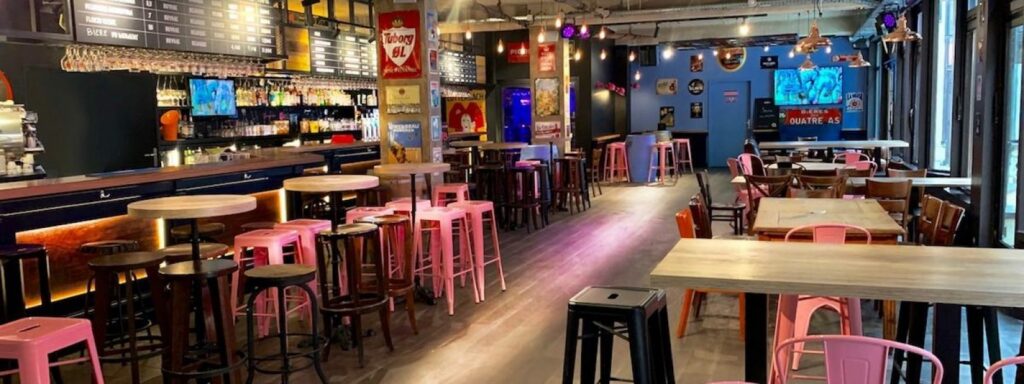
Welcome Reception will take place at the Delirium café, Tuesday Nov. 14th from 6pm (until as late as you like). One drink and some platters of cold cuts or cheese will be served. Delirium café is located at 15, place des Lices in the downtown area (link to Google Maps).
Poster Session and Industrial Keynotes Wednesday nov. 15th at 19:30PM
Poster program:
ZStudio: Portable and Real-time Motion Capture Studio for Creators in the Metaverse.
Jung-Seok Cho, Seongchan Jeong, Geonwon Lee, Jaehyun Han and HyeRin Yoo.
Improving self-supervised 3D face reconstruction with few-shot transfer learning.
Martin Dornier, Philippe-Henri Gosselin, Christian Raymond, Yann Ricquebourg and Bertrand Coüasnon.
Disentangling Embedding Vectors for Controllable Facial Video Generation.
Matt Partridge.
A summary of VR quadruped embodiment using NeuroDog.
Donal Egan, Darren Cosker and Rachel McDonnell.
ShapeVerse: Physics-based Characters with Varied Body Shapes.
Bharat Vyas and Carol O’Sullivan.
How Much Do We Pay Attention? A Comparative Study of User Gaze and Synthetic Vision during Navigation.
Julia Melgare, Guido Mainardi, Eduardo Alvarado, Damien Rohmer, Marie-Paule Cani and Soraia Musse.
A Comparative Evaluation of Formed Team Perception when in Human-Human and Human-Autonomous Teams.
Chandni Murmu, Gnaanavarun Parthiban, Konnor McDowell and Nathan McNeese.
Exploring the Influence of Super-Functional Virtual Hands on Embodiment and Perception in Virtual Reality with Children.
Yuke Pi, Leif Johannsen, Simon Thurlbeck, Dorothy Cowie, Marco Gillies and Xueni Pan.
Improving motion matching for VR avatars by fusing inside-out tracking with outside-in 3D pose estimation.
George Fletcher, Donal Egan, Rachel McDonnell and Darren Cosker.
Enabling Physical VR Interaction with Deep RL Agents.
Paul Boursin, David Hamelin, James Burness and Marie-Paule Cani.
Sparse Motion Semantics for Contact-Aware Retargeting.
Théo Cheynel, Thomas Rossi, Baptiste Bellot-Gurlet, Damien Rohmer and Marie-Paule Cani.
Detailed Eye Region Capture and Animation.
Glenn Kerbiriou, Quentin Avril and Maud Marchal.
ArtWalks via Latent Diffusion Models.
Alberto Pennino, Majed El Helou, Daniel Vera Nieto and Fabio Zund.
A Perceptual Sensing System for Interactive Virtual Agents: towards Human-like Expressiveness and Reactiveness.
Alberto Jovane and Pierre Raimbaud.
Persuasive polite robots in free-standing conversational groups
Christopher Peters
Real-time self-contact sensitive finger and full-body animation of avatars with different morphologies and proportions
Mathias Delahaye, Bruno Herbelin and Ronan Boulic
City Tour, Thursday nov. 16th 17:00PM
Meetup in front of the tourisme office (Click here for position) at 17:00PM for a tour of Rennes before dinner !
Dinner in the downtown area, Thursday nov. 16th 19:30PM
Meetup at ‘La Fabrique Saint-Georges’ (Click here for position) at 19:30PM, for a convivial dinner in the downtown area of Rennes !
Conference Organization
Conference Chairs
- Julien Pettré, Inria, France
- Barbara Solenthaler, ETH Zurich, Switzerland
Program Chairs
- Rachel McDonnell, TCD, Ireland
- Christopher Peters, KTH, Sweden
Poster Chair
- Jovane Alberto, Trinity College Dublin
Main Contact
All questions about submissions should be emailed to Rachel McDonnell (ramcdonn (at) tcd.ie) and Christopher Peters (chpeters (at) kth.se).
Julien Pettré, Inria, France (julien.pettre (at) inria.fr)
All questions about posters should be emailed to Jovane Alberto, Trinity College Dublin (JOVANEA (at) tcd.ie)




